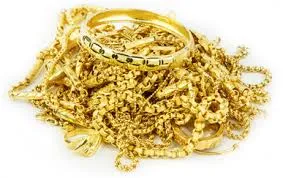Global Consumers Sell their Gold too cheaply

90% of the recycled supply of gold comes from the consumer (not industrial scrap) i.e. when the consumer sells their jewellery/scrap. We have proof that from this $50 billion industry the consumer, through overlong supply chains filled with many rogue middlemen, gets short-changed to the tune of some $33 billion taking money from the pockets of those who need it and away from the local economy, having an impact on local revenue and employment
It is very apparent to those who operate in the high-value supply chain for precious metals that the said chain is simply too long. Middle-men buy gold and precious metals from consumers and jewellery makers and sell on to more middle-men who then sell on to yet more, each taking a profit from the transaction. As a result of this inefficient chain, the original recycler i.e. the consumer accepts, or is forced to accept, a poor price for their precious metals whilst the whole recycling process is slowed down and becomes inefficient.
Consumers around the world through lack of knowledge in the murky world of the precious metals recycling e.g. for gold and silver lose billions of dollars a year.
Inexorably linked to the problem outlined above, every year, globally, millions of £/USD are scammed from consumers selling their precious metals. Market forces and even the accessibility of information regarding the trading (or spot) price of gold etc. have failed to deter the unscrupulous trader from buying gold, silver and platinum precious metals from the consumer at far below market price It’s not just consumers that are affected by this. Even the middlemen who buy from the consumer and sell on to other middlemen often receive prices far below spot price and it all gives the Industry a bad name
Examples of middlemen include jewelers, pawnbrokers, cash for gold pop-up shops, canvassers postal gold company’s, antique dealers, etc. and we have heard regularly of prices as low as 30% of the spot market price for gold, being offered to the consumer. For comparison the National gold-recycling/processing companies out there for example Birmingham Gold Company https://www.birminghamgoldcompany.co.uk or Hatton Garden Metals (tho they seem to retail the scrap gold they have bought) amongst several genuine businesses in the industry pay 94-6% of the spot price i.e. market price. So the thing to do is to cut out the middlemen.
This is an unacceptable situation. Consumers may have an urgent need for funds or may even be in financial straits. Of course, while market forces and the Internet mean that consumers should be able to shop around for better prices when they come to sell their gold or silver, often the choice in their local area is so limited that 30-50% of the spot or market price for gold is all they can realize.
To make matters worse within this corrupt chain there are rogues and cheats that will under-weigh gold items thus affecting value, or even undervalue the asset’s purity
This unfair system not only means consumers get less for their gold, they have less to spend and put back into their local economies. This can make a major difference to the success or otherwise certainly of a small local economy as gold and silver and platinum are basically as good as money. Shortly we will reveal that $billions of USD are lost in this way
More importantly many people only sell their valuables as a last resort and it is unethical and immoral to pay a pittance or a low percentage of the spot market value of their precious metals It happens even in countries like the USA and the difference in prices offered is striking (see fig 7 below)
NB It is important to note that some of the evidence below i.e. found in the public domain dates back over the past five years and there has been a marked decline in consumers posting their poor gold selling experiences online BUT to conclude that this means a fairer system would be incorrect. The slight decline in gold prices from the recent high in 2012 has simply meant that poor selling experiences are no longer newsworthy and have simply become the norm. Added to this the fact that there is little policing or regulation of gold-buying. Complainants have realized over the past few years that there is little they can do to recover undersold assets. Whilst few people bother to complain online about these scams anymore that does not mean to say they no longer happen. They do… Gold scams are as old as the hills.